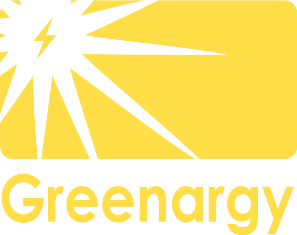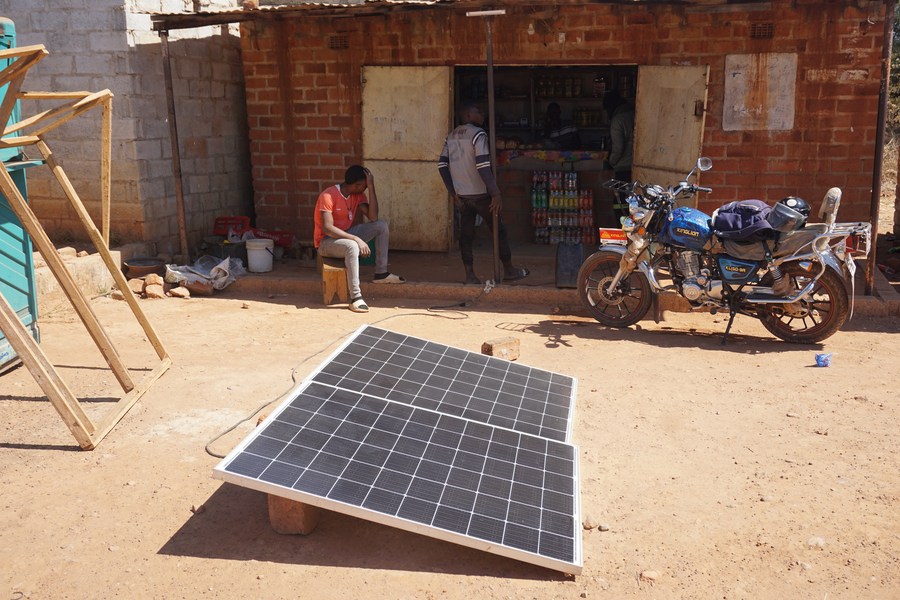An Energy Vision for Rural Communities in Cameroon
An Energy Vision for Rural Communities in Cameroon, Solar Energy: In recent years, there has been a growing interest in renewable energy sources, particularly solar energy, as a way to combat climate change and ensure a sustainable energy future.
In Cameroon, the rural communities face numerous challenges, including limited access to electricity and high reliance on non-renewable energy sources, such as firewood and charcoal. This article explores the potential of solar energy in providing a sustainable energy vision for rural communities in Cameroon.
Challenges in Rural Energy Access
Rural communities in Cameroon face significant challenges in accessing reliable and affordable energy sources. The national grid often does not extend to these remote areas, leaving residents with limited or no access to electricity. This lack of energy infrastructure hinders the socio-economic development of these communities, impacting areas such as education, healthcare, and economic productivity. Additionally, reliance on traditional energy sources such as kerosene lamps and diesel generators poses health and environmental risks.
I. Solar Energy Potential in Cameroon
Cameroon is located in the tropical region, which receives abundant sunlight throughout the year. This makes it an ideal location for harnessing solar energy. According to a study by the United Nations Development Program (UNDP), solar energy has the potential to meet up to 40% of the country’s electricity demand. This figure highlights the importance of solar energy as a viable energy solution for rural communities in Cameroon.
II. Challenges and Barriers to Solar Energy Adoption in Rural Communities
Despite the promising potential of solar energy in Cameroon, several challenges and barriers hinder its adoption in rural communities. These include:
- Lack of awareness: Many rural communities are unaware of the benefits of solar energy and its potential to provide clean and reliable electricity.
- High initial costs: The upfront costs of solar panels, inverters, and batteries can be prohibitive for many rural households.
- Limited access to financing: Rural communities often lack access to financial institutions that can provide affordable loans for solar energy systems.
- Inadequate infrastructure: Poor road networks and limited access to maintenance services can hinder the effective installation and maintenance of solar systems in rural areas.
III. Strategies to Promote Solar Energy Adoption in Rural Communities
To overcome the challenges and barriers to solar energy adoption in rural communities, the following strategies can be implemented:
- Education and awareness campaigns: Government and non-governmental organizations should collaborate to raise awareness about the benefits of solar energy among rural communities.
- Financial incentives: Governments can provide subsidies, tax breaks, or low-interest loans to encourage the adoption of solar energy systems in rural communities.
- Strengthening local institutions: Capacity building and training of local technicians and institutions can help ensure the effective installation, maintenance, and monitoring of solar systems in rural areas.
- Public-private partnerships: Collaboration between the government, private sector, and international organizations can help facilitate the development of solar energy projects in rural communities.
IV. Case Studies and Success Stories
Several successful solar energy projects have already been implemented in rural communities in Cameroon. For example, the “Solarize Cameroon” initiative, supported by the UNDP, has installed solar-powered streetlights and other infrastructure in rural areas, improving access to electricity and promoting local economic development.
Role of Solar Power Supply
The introduction of solar power supply holds great promise for addressing the energy needs of rural communities in Cameroon. Solar energy is abundant in the region, making it a sustainable and renewable resource. By harnessing solar power, communities can access a reliable source of electricity that is not only environmentally friendly but also cost-effective in the long term. Furthermore, solar power systems can be tailored to meet the specific needs of rural households, powering lighting, communication devices, and small appliances.
The Role of Solar Energy in Education
Education is a vital component of any society’s development, and in rural Cameroon, solar energy can play a crucial role in improving access to education. Solar-powered lighting and charging systems can be installed in schools, providing a safe and reliable source of power for students to study and teachers to teach. Additionally, solar-powered computers and other educational equipment can be used to enhance the learning experience.
Moreover, solar-powered internet connectivity can be provided to schools, enabling students to access online resources and participate in e-learning programs. This can help bridge the digital divide, ensuring that rural students have the same opportunities as their urban counterparts.
The Role of Solar Energy in Health
In rural Cameroon, solar energy can also improve the quality of healthcare services available to the local population. Solar-powered medical equipment, such as refrigeration units for storing vaccines and blood products, can be used to ensure the safe and effective storage of these essential items. Additionally, solar-powered lighting can be used to illuminate healthcare facilities, making them safer and more efficient places to work and receive treatment.
Furthermore, solar energy can be used to power telemedicine services, connecting rural healthcare providers with specialists in urban areas. This can help improve the overall quality of care received by patients in rural communities, as well as reducing the need for expensive and time-consuming travel to urban centers for specialized treatments.
Community Empowerment and Economic Development
The adoption of solar power supply can have far-reaching impacts on rural communities beyond meeting their immediate energy needs. By providing access to electricity, these communities can enhance educational opportunities through improved lighting for studying and access to information and communication technologies. Additionally, electrification can support local businesses and income-generating activities, contributing to economic development and poverty alleviation.
Impact on Community Development
Solar energy has the potential to drive economic growth and create job opportunities in rural Cameroon. By investing in solar power projects, the government can attract foreign investors and encourage local entrepreneurs to establish businesses in the renewable energy sector. This can create jobs, boost the local economy, and improve the standard of living for rural communities.
Solar energy offers a sustainable and clean alternative to traditional energy sources for rural communities in Cameroon. By investing in solar power infrastructure, the country can improve education, healthcare, and overall community development. The government and international organizations must work together to promote solar energy adoption and ensure that rural communities have access to reliable, affordable, and clean energy for a brighter future.
V. Conclusion
Solar energy has the potential to revolutionize the energy landscape in rural communities in Cameroon by providing clean, reliable, and affordable electricity. By addressing the challenges and barriers to solar energy adoption, including lack of awareness, high initial costs, and inadequate infrastructure, rural communities can harness the power of the sun to build a sustainable energy future.
Take Action Now


